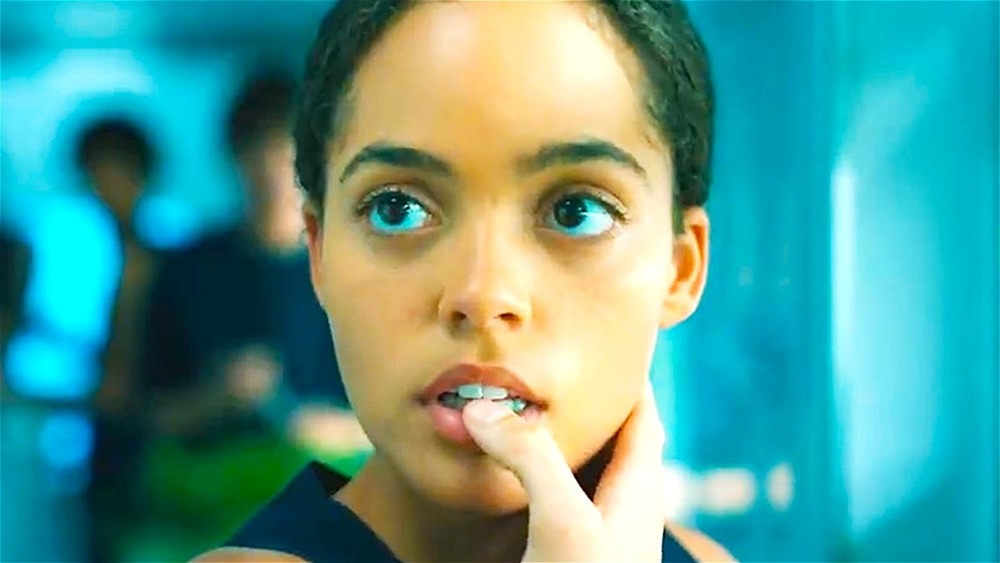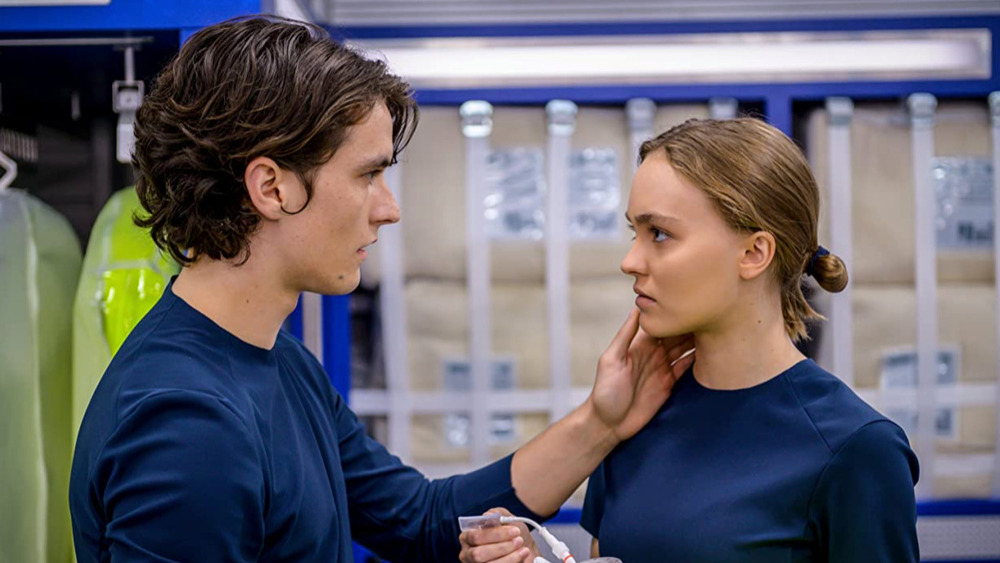The Ending Of Voyagers Explained
Voyagers, the latest science fiction film starring Tye Sheridan and Lily-Rose Depp is, in a way, a sort of Lord of the Flies set on a starship far from the reaches of Earth and human civilization. While the children in Lord of the Flies wind up trapped on an island by accident, the young people onboard this starship (which is more of an ark) are there by design. In both cases, the adolescent ensemble has to reckon with the chaos of a world without adult rules.
On its face, Voyagers has a familiar sci-fi premise: The Earth's time is running out. Richard (Colin Farrell), a scientist with a plan, takes a crew of young people who have never interacted with the rest of the world into space, where they will live and eventually breed the next generation of humans. The hope is that their children will eventually arrive on a new world for humanity to populate. So, a pretty standard execution of the generation ship trope.
The stars of Voyagers will never see that new world. They are the intermediary generation between the humans of Earth and their children, who will hopefully be the ones to kickstart human civilization all over again someplace new. The end of Voyagers and its meaning are tied to the chaos of what happens aboard that lonely vessel in the blackness of space. Here's the ending of Voyagers explained. Major spoilers ahead.
Voyagers ending isn't about the future, it's about right now
Richard's big plan once everyone's on the ship is to trick the kids into self-medicating with something called "The Blue," which is essentially a cocktail of anti-androgens and other meds designed to keep everybody sexless and docile. But the kids find out about the drug, and they stop taking it. Without The Blue, the kids become volatile, which results in Richard's death, leaving the kids to fend for themselves.
These kids may not have experienced much of Earth, but they're still human, so they do exactly what humans do — they vie for power through violence and manipulation. They even create a pretend evil alien designed to explain away Richard's death. More crewmembers die and, for a while there, it seems like the entire mission will end with no survivors.
The movie actually ends with a détente, however. Two male leaders, Christopher (Tye Sheridan) and Zac (Fionn Whitehead), who have been struggling for control of the mission, accept the compromise that Sela (Lily-Rose Depp) the medic will take charge. Christopher and Zac step down and cease hostilities, but they agree that everyone will stop taking The Blue.
The movie ends showing that these people do age, and do indeed procreate. Their progeny do make it to a new world. The resolution is a major contrast with the rest of the chaotic and violent third act. It begs a metaphorical reading of the movie's plot: Earth is our vessel, and like the crew of the fictional starship, we are often manipulated by one another into doing self-harm. We have these periods of volatility, during which we wonder if the human species will make it to see another day, but even when our interests seem diametrically opposed, it's the process of reconciliation that guarantees our future.
Voyagers looks to this future, but it reminds us of our past, too. It reminds us that there has always been chaos caused by humanity, which carries the risk of extinction. We've survived wars, we've endured genocides, and we've navigated the creation of planet-destroying weapons. All of these wounds are self-inflicted, and yet we are still here. What Voyagers is daring us to believe with its ending is that we will not only keep surviving, but that we'll thrive for so long that we'll reach out into the farthest parts of the galaxy to inhabit new worlds. It's an optimistic movie in the end.

